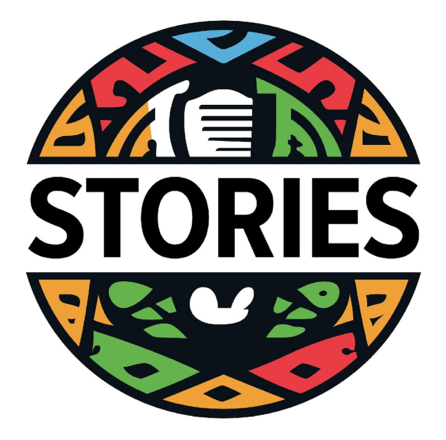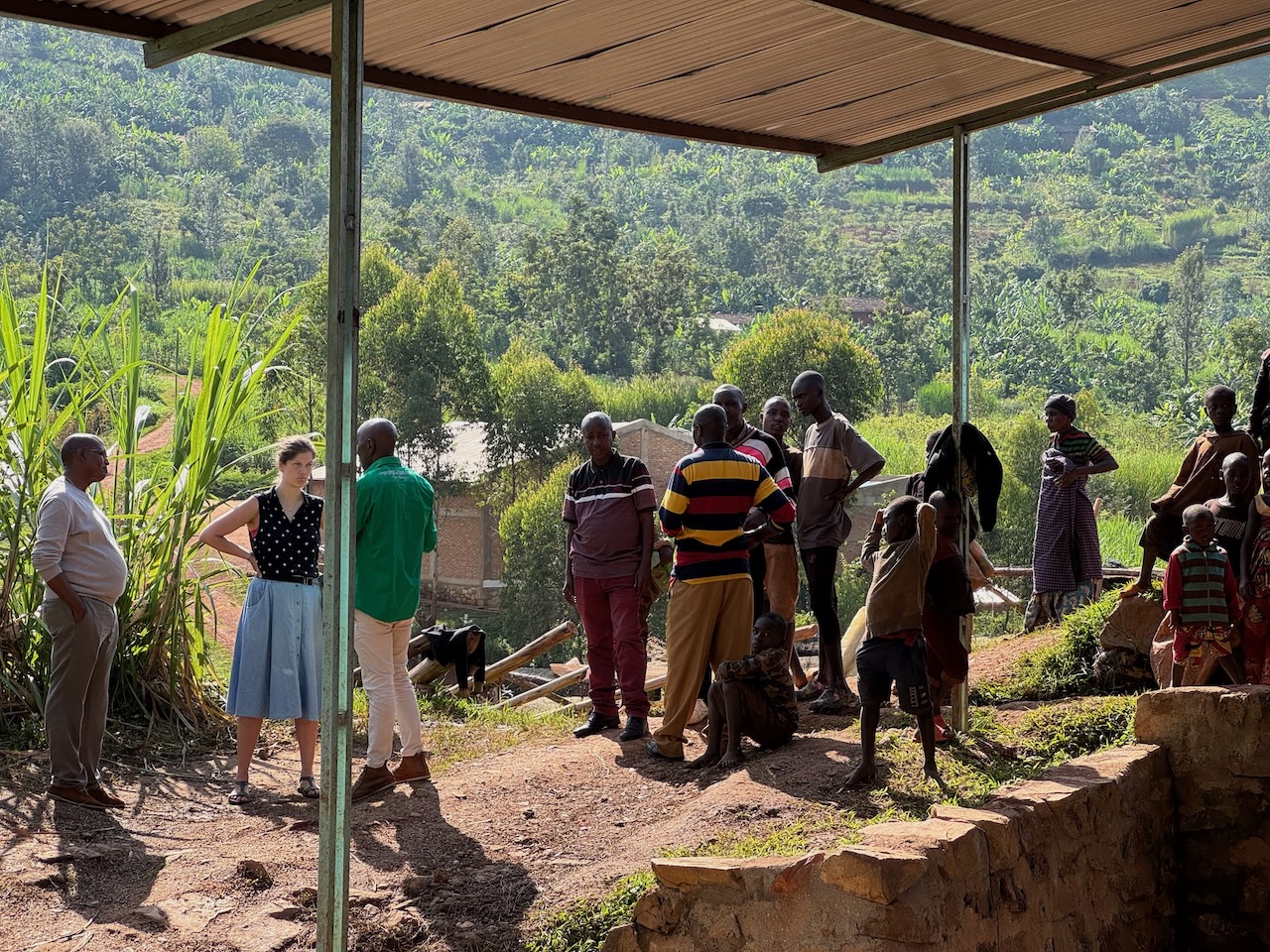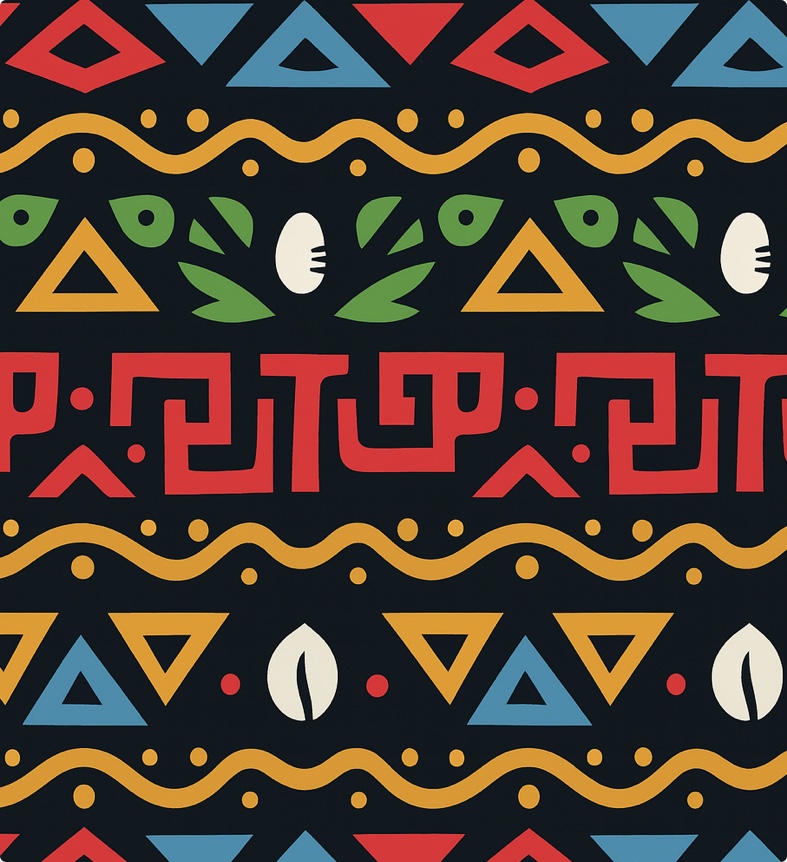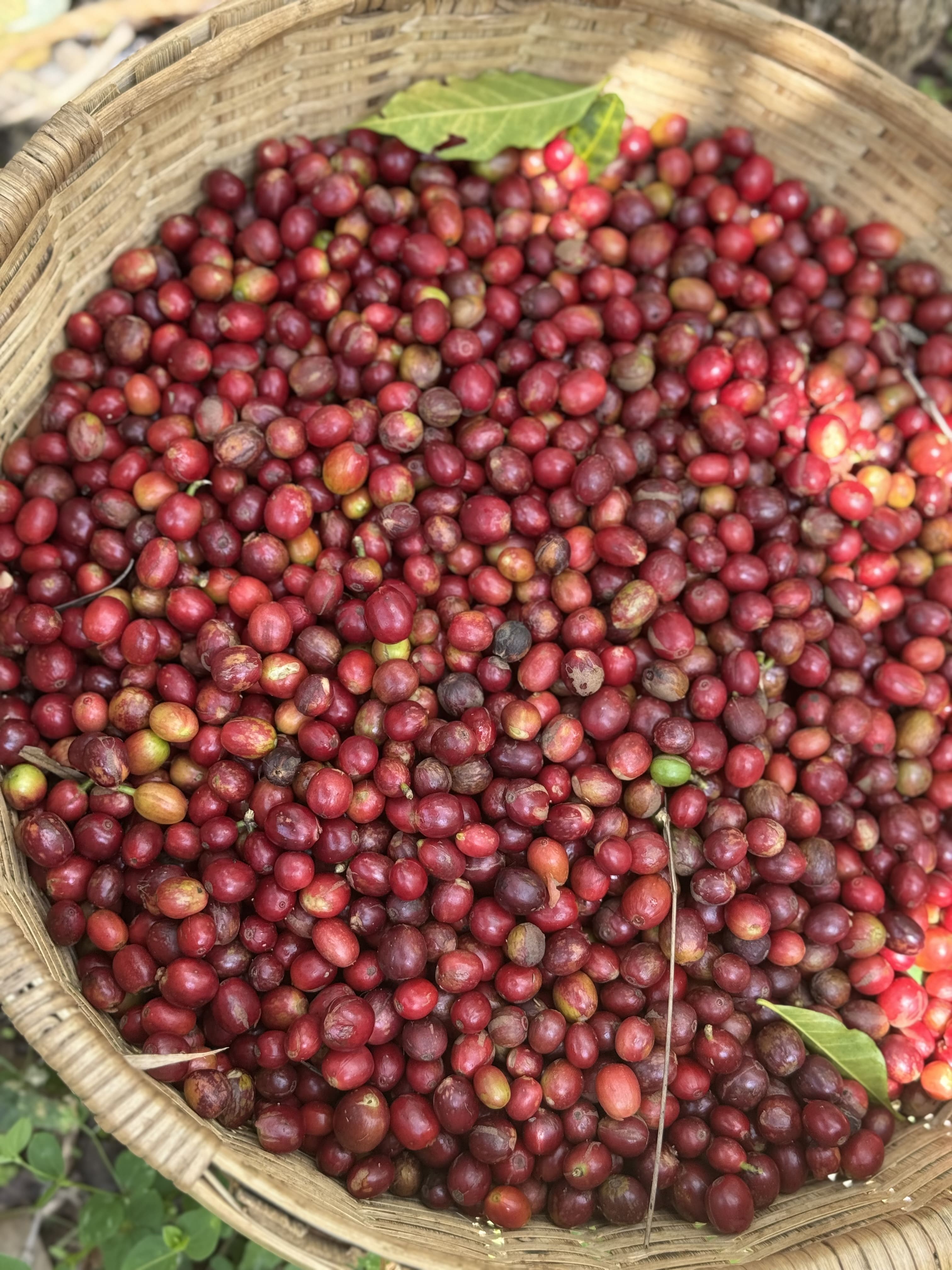- Remove the current class from the content27_link item to ensure Webflow's native current state is applied correctly.
- To add interactions which automatically expand and collapse sections in the table of contents select the content27_h-trigger element, add an element trigger and select Mouse click (tap)
- For the first click, select the custom animation Content 28 table of contents [Expand], and for the second click, select Content 28 table of contents [Collapse].
- In the Trigger Settings, deselect all checkboxes except for Desktop and above to prevent interaction issues on smaller devices.
Visit to Burundi – May 2025
In May 2025, we returned to Burundi with a clear goal: to trace the entire value chain of cooperative coffee—from the fields of Kayanza to the dry mills, and finally to the partners who make export possible. Every step gave us a deeper appreciation for the people and processes that shape the cup.
Meeting the Farmers
Our first stop was the Dusangirijambo cooperative, producers of last year’s outstanding washed coffee. We joined farmers in the fields for a morning of cherry picking and shared conversations about their work and lives. Most of these farmers cultivate small plots, yet their collective effort results in extraordinary quality.
A Rare Natural Process in Burundi
We then visited Kazoza n’Ikawa, a cooperative that stands out in Burundi for producing naturally processed coffee. Tasting their previous harvest left us more than impressed—the complexity and fruit-forward notes were remarkable. Although last season’s small lots had already sold out, we’re thrilled to be first in line for the upcoming crop. Natural processing here brings not only exciting flavors but also an 8–10% premium on the wholesale price, creating more value for local producers.
Inside the Dry Mill
In Kayanza, we toured Horamama, one of the country’s largest dry mills. Two milling lines were being fine-tuned in preparation for the July start. Beyond processing, Horamama also serves as the final storage site before export—its altitude and humidity provide ideal conditions for preserving quality.
The Final Step: Export Readiness
Back in Bujumbura, we sat down with our partners at COCOCA, who handle the critical documentation and licensing that ensures coffee is cleared for export. Their role is vital in connecting Burundi’s farmers with roasters worldwide.
At Stories Café, we believe in full transparency—from cherry to cup. By walking the value chain step by step, we can share not just the coffee, but also the stories of the people and practices behind it.
Want to know more about our sourcing practices and how we work with cooperatives?
Reach out at info@storiescafe.eu—we’d love to continue the conversation.





